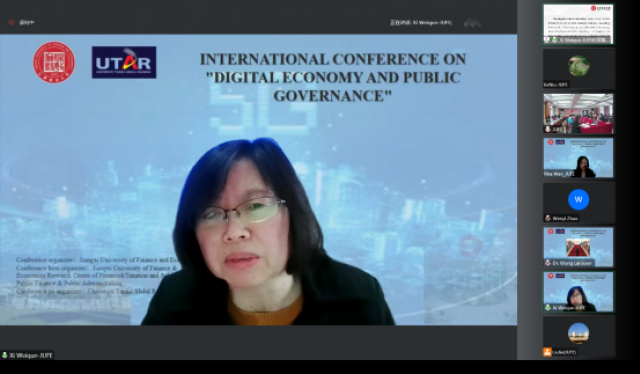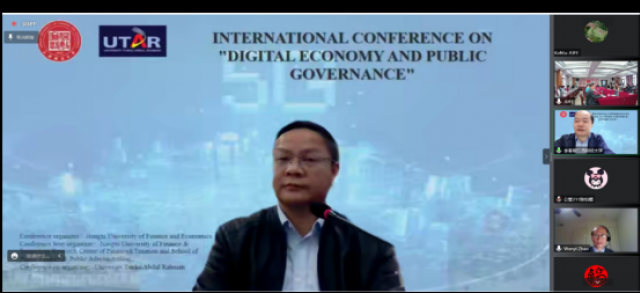Sr. Research Scientist Zhao Wenyi delivered a keynote speech at the International Conference on "Digital Economy and Public Governance"

Zhao Wenyi, a Senior Research Scientist at Jacobus Pharmaceutical Company, delivered a keynote speech titled Digitalization of Pharmaceutical Industry. He pointed out that the pharmaceutical industry is facing tremendous challenges associated with high risks, globalization, supply-chain complexity, and cost pressure. Digitization holds tremendous potential to help pharmaceutical companies address these challenges, giving them a sustainable competitive advantage, cost-efficiency, and ultimately provide better care for patients. By applying digital technology, companies can significantly increase visibility into their supply chain operations and make better and faster decisions. Digitization allows companies to fully integrate their supply chains and improve operational processes, making them more adaptive and responsive. As a result, planning accuracy, manufacturing efficiency, and productivity are improved.
He cited several examples to demonstrate the impact of digitization on the pharmaceutical industry. Example 1: High Throughput Experimentation (HTE) & Automation Team. Which is a team of synthetic chemists, chemical engineers, and analytical scientists, and helped invent new chemistries, develop robust, safe and efficient chemical processes. Example 2: Digitalization of Laboratory Notebook. Digitalization of laboratory notebook makes the data entry more accurate with fewer errors and allows sharing experimental results and data within the organization instantly, which enable to make next-level decision efficiently. Laboratory automation allows chemists generate rapidly critical process parameters and transfer these process data to the product plants quickly which reduces labor costs and enhances the productivity. Other Examples like physiological simulation will accelerate product development, and 3-D tissue modeling will help assess potential toxicity using computer simulation. In late development, sensor-data streams from in vivo clinical trials captured by wearables will be factored into registration filings to give an early indication of real-world effectiveness. Digital-engagement technologies facilitating Active Pharmaceutical Ingredients (APIs) production. a “patient finder” technology that mines electronic medical records to identify sufferers from specific rare diseases will enable sales forces and medical science liaisons to focus on providers caring for patients likely to have those diseases.
Finally, he concluded that during the drug discovery, digital techniques can accelerate the progression from initial concept to drug candidate, improve the chances of success through optimizing drug design, and enhance drug discovery speed.
- ・Dean Au Yong Hui Nee delivered...
- ・Dr. Xi Nan delivered a keynote...
- ・Engineer Khaled Nedal Mahmod S...
- ・Professor Xi Weiqun delivered ...
- ・International Conference on &q...
- ・Sr. Research Scientist Zhao We...
- ・Dr. Zheng Jiaxing and Xie Tian...
- ・Professor Cassidy Julie delive...
- ・Jiangxi University of Finance ...
- ・国际合作与交流处杨勇副处长来学院开展学生出国(境)留学专题讲...

 Dean Au Yong...
Dean Au Yong... Dr. Xi Nan d...
Dr. Xi Nan d... Engineer Kha...
Engineer Kha... Professor Xi...
Professor Xi... Internationa...
Internationa... Sr. Research...
Sr. Research...